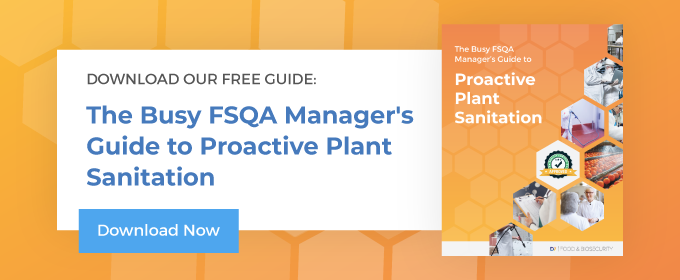Hiring an FSQA Manager is not a decision to be taken lightly. This person is responsible for ensuring that food quality and safety practices are correctly followed. When the right person is not in this role, the risks include a drop in quality and, in the worst case, an outbreak that negatively affects consumers and causes damage to your brand. In addition to the appropriate level of training and experience, the ideal FSQA Manager will also have certain qualities that make them more effective in their role.
Commitment to Quality
You want an FSQA Manager who takes pride in their work and displays a strong commitment to quality. You can identify this type of individual by the information they share during the interview process. Look for a person who closely tracks quality issues and has taken the initiative to resolve them. Ask about specific steps they have taken in previous roles to improve quality and ensure that standards are maintained.
A Culture of Safety
Developing a culture of safety means that every individual, no matter their role or level in the organization, is committed to creating a safe work environment. In the case of FSQA Managers, this includes safety for both employees and consumers. When a leader makes it clear that everybody is accountable for safety, employees are more likely to speak up when they see something that can be improved. This ultimately benefits the company because potential safety issues don’t get ignored and crews work together to reduce safety incidents. Ask potential candidates what they have done in the past to create a culture in which every employee feels empowered to help make the facility a safe one.
Attention to Detail
Sanitizing a facility requires treating every square inch of every surface. This requires extreme attention to detail, and it starts with the FSQA Managers who are responsible for developing procedures and ensuring they are completed properly. This also includes creating tracking and reporting mechanisms to ensure sanitation schedules are closely followed and standards are maintained. When interviewing candidates, ask about the systems they have created in past jobs and what specific details make those systems more effective.
Excellent Communication
FSQA Managers interact with teams of sanitation crews, and they can’t be present every time the facility gets sanitized. This requires working closely with team leaders and communicating consistently to ensure that all team members are on the same page. They interface with internal production, purchasing, and R&D departments. They also communicate with external suppliers, so it’s important that you hire a person with strong communication skills. Ask how a candidate would respond in certain realistic situations that occur in your facility to gauge how good they are at communicating.
Process Development Skills
One key strength of a good FSQA Manager is the ability to develop and implement processes. The regulatory landscape is constantly changing, which requires procedures to be adapted. Although it is often the case that the tried-and-true methods are the ones that work best, sometimes a change is necessary to stay compliant and competitive. Ask potential candidates about processes they have developed in previous roles and what steps they took to implement them.
Innovation
An excellent FSQA Manager will always have an eye on developments in the industry and be eager to test new systems that will improve efficiency and quality. Whether it’s a software program that helps automate sanitation schedules or a new sanitizer that can help crews save time, an engaged FSQA Manager will stay on top of innovations in the industry. Ask what new developments they have recently learned about or what innovative systems they have created in the past to get a sense of their enthusiasm for trying something new.
Relevant Certifications
Subject matter expertise is a necessary component of any job, and for FSQA Managers, that can be assessed through past experience, training, and certifications. Some certifications to look for include Food Fraud, FSVP, PCQI, Supplier Quality Professional Certification, and SQF Practitioner certification. Training on HACCP is also a plus for this important role.
Find a Proactive FSQA Manager
Finding the right combination of both hard and soft skills in an FSQA Manager can be challenging, but if you know what to look for, you can find the right member for your team. To get an idea of the types of steps a proactive FSQA Manager should be taking, read our free guide, The Busy FSQA Manager’s Guide to Proactive Plant Sanitation.

